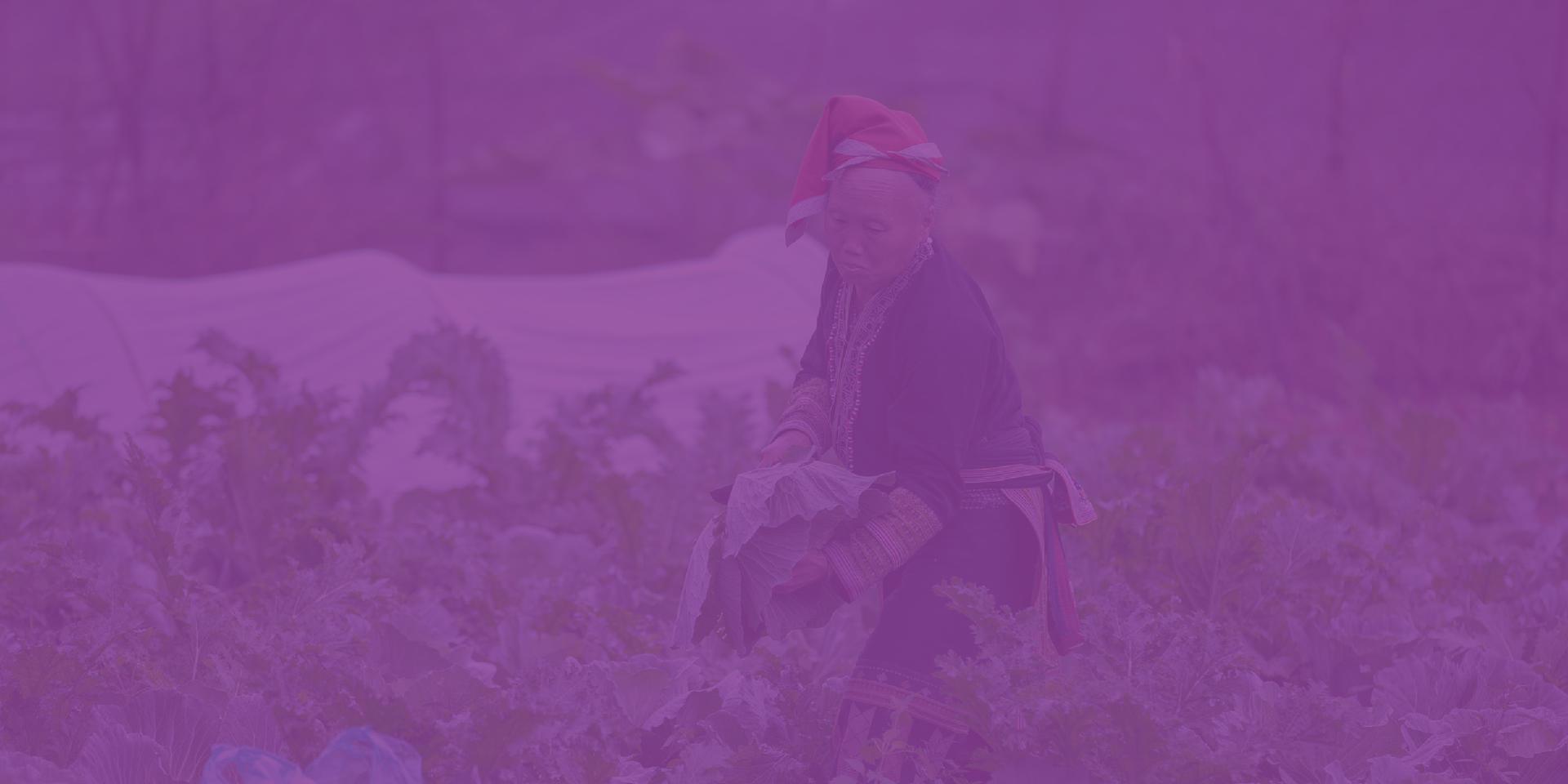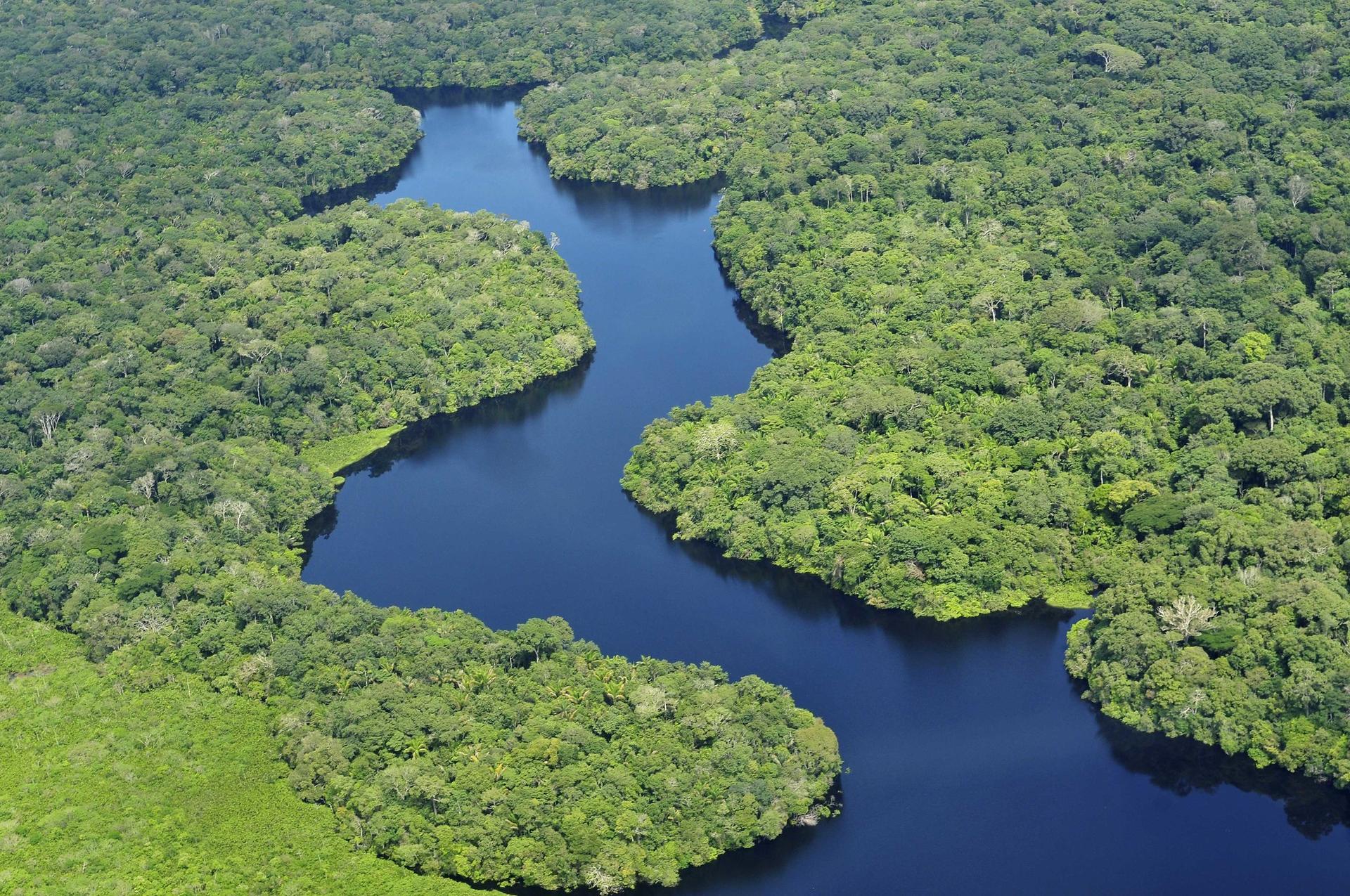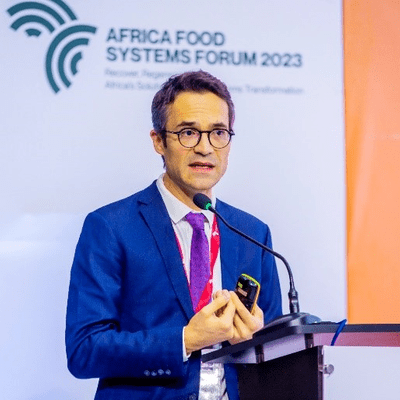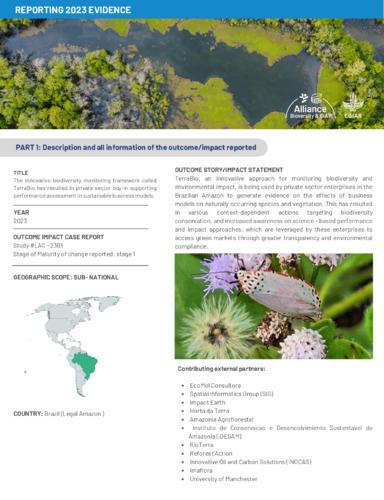2023 Annual report Sustainable Finance

Sustainable finance is a growing space where scientific evidence can bolster smallholder farmers’ resilience. We need significant investments to transition to low-carbon and climate-resilient food, land and water systems: up to an additional US$400 billion per year (less than 0.5% of global GDP) is required to achieve climate mitigation and adaptation targets, as well as to meet other sustainable development goals (SDGs).
A case study of sustainable finance in action
A case study of sustainable finance in action takes us to the Brazilian Amazon, where we have been working with local partners to improve the well-being of Indigenous peoples and farming communities by increasing opportunities for sustainable livelihoods by directly engaging private sector actors in the conservation of biodiversity. With Indigenous products such as Brazil nuts or açai berries, guided investment resources can yield financial return as well as generate positive social and environmental changes. One example is the ‘Our Forest, Our Home’ project, implemented by Alliance partner Forest Trends, which strengthens the local governance of Indigenous communities in the Amazon and supports the establishment of income-generating sustainable enterprises such as ecotourism, handicrafts, and a well-monitored forest products value chain.

Aerial view of the Amazon Rainforest, near Manaus, the capital of the Brazilian state of Amazonas. Credit: Alliance Bioversity International and CIAT/ Neil Palmer

Godefroy Grosjean
CGIAR Sustainable Finance (ImpactSF) Co-Lead
Ena Derenoncourt
Gender-Smart Investment Specialist, CGIAR Hub for Sustainable Finance (ImpactSF)
Richard Newman
CGIAR Sustainable Finance (ImpactSF) Co-LeadTracking our Impact: Sustainable business models conserve biodiversity in the Amazon
For small-scale farmers in low- and middle-income countries, access to sustainable finance cannot come soon enough. Smallholder farmers from developing countries produce one-third of the world’s food, yet they only receive 0.8% of global climate finance. Insufficient finance puts the livelihoods of farmers at risk, who are already among the population groups most affected by climate change. The damage already caused by climate change shows that we are currently failing to help small-scale farmers thrive in a world threatened by global health and environmental crises. To build food systems resilience, financial mechanisms must be developed that ensure that food systems and livelihoods remain strong in the face of change.
The Alliance has a strong role to play in upscaling sustainable finance. Capital providers demand evidence-based guidance to steer investments for the benefit of farmers and the environment.
Specifically, investors lack the capacity to:
- Accurately assess climate change and environmental risks.
- Design climate-smart investment products.
- Identify and upscale high-impact projects and business models.
- Accurately measure and monitor the impacts of their investments.
2023 was the first full year since we launched the CGIAR hub for Sustainable Finance (ImpactSF), hosted by the Alliance, designed to overcome these barriers and unlock investment for small-scale farmers. ImpactSF has taken a leadership role in developing a solutions framework, applying CGIAR research to enhance investment decision making. Of note is the ImpactSF Analyzer which provides context and value chain-specific climate risk assessments of farmer, agri-SMEs and agribusinesses. The platform also provides recommendations on associated practices and technologies to mitigate these risks and estimate their potential impacts (e.g. greenhouse gas emissions, water use efficiency and productivity). In 2023, the ImpactSF Analyzer was tested with banks in six countries in Africa and Asia, with the objective of upscaling its use in 2024 and beyond.
Learn more about CGIAR hub for Sustainable Finance (ImpactSF)
To increase investment mobilization, the ImpactSF team is building off the design and launch of the Climate Smart Food Systems Fund in partnership with responsAbility Investments AG, to conceptualize two new large-scale funds: the Financial Inclusion for Climate Resilience & Adaptation Fund (FICRA) and the Ag360 Fund focusing on biochar and agricultural waste management. These new fund concepts, with an initial target value of more than $400 million USD, show stakeholders’ strong commitment to incorporate science-based approaches in the investment lifecycle.
Lastly, in 2023 the theme of sustainable finance was prominent at many high-level events. Notably, ImpactSF hosted a side event at COP28, ‘Pioneering evidence-based finance instruments for food systems transformation’ which involved high-level speakers from British International Investment, Norad, and the Climate Bonds Initiative, among others.

